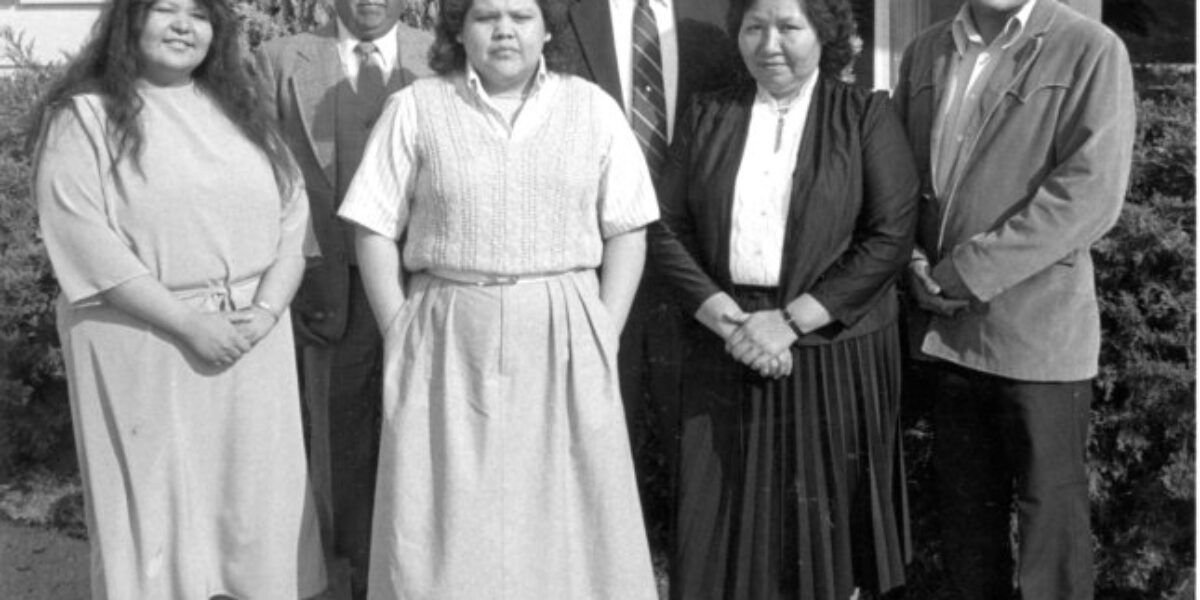Ray E. Horst had a passion for social justice and people. He quietly built cross-cultural partnerships throughout the United States and sought to empower everyone in his path.
Horst died on July 20, at the age of 89 in his home in Elkhart, Ind. He was a 35-year employee for Mennonite Board of Mission (a predecessor to Mennonite Mission Network).
Horst began his career in 1954 as the Voluntary Service director. He earned the nickname “Mr. MVS” for calling thousands of young adults to serve during the 10 years he administrated units across the United States and Canada. This prepared him to later oversee all domestic mission work at MBM, ending in 1989.
“The practice of shoulder-tapping and mentoring characterized Ray’s life,” said David Miller, a professor at Anabaptist Mennonite Biblical Seminary, who experienced Horst’s shoulder tap that led to ministry. “He was constantly seeking ways to encourage and release the gifts of others in ministry and service.”
Horst was both seeking others for ministry and being sought. Members of the Kennedy administration asked Horst to help develop the Peace Corps and what would later become Ameri-Corps. Although Horst consulted for the government-run service programs, his true call was to church ministry.
Horst’s love of church work and trains carried him and his co-worker Willard Roth down the tracks to southern Texas in the mid-1970s. From there, Horst introduced Roth to the ministries of the Hispanic Mennonite Church. Roth marveled at the extent to which Horst had endeared himself to the people from previous visits.
“Ray knew everything about [domestic mission work] from Portland to Florida,” Roth said. For this reason, among others, Horst spent most of his MBM days occupying various positions involving stateside service work, except a two-year stint in Nigeria, with Mennonite Central Committee. Horst’s other positions included secretary for Relief and Service, director of Personnel Recruitment, associate executive secretary, vice president of Home Ministries and director of Evangelism and Church Development.
More notable than his titles was Horst’s character. Roth said that Horst embodied the fruits of the Spirit, especially Eugene Peterson’s description in The Message. “Horst had ‘affection for others, exuberance about life, serenity… a willingness to stick with things, a sense of compassion in the heart, and a conviction that a basic holiness permeates things and people. [He was] involved in loyal commitments, not needing to force our way in life, able to marshal and direct [his] energies wisely,’” Roth said.
Horst was “a pioneer and an agitator,” said Roth, acknowledging that Horst encouraged social justice well before it was popular among Mennonites. Horst advocated for racial/ethnic minorities to be more welcomed and involved in the Mennonite Church.
Towards the end of Horst’s time with the Mennonite Board of Missions, he transitioned to his passion: working with indigenous people. Horst had long believed that the Mennonite Church had neglected them and wanted to correct that wrong.
After extensive talks with indigenous pastors, in 1984 Horst formed United Native Ministries. Representatives from each of the churches gathered to discuss similar problems to work toward common solutions.
Horst was a mentor and ensured confidence in the people he worked with, said Carol Roth, who worked with Horst at UNM (now Native Mennonite Ministries) in later years. She remembers a time when a former NMM president was asked to serve on the Mennonite Church USA Executive Board. The woman was unsure of herself and hesitant to take the role. “I know that you can do it,” said Horst and persuaded the woman to participate.
Horst is survived by his wife Ruth Brunk Horst, his children, Carolyn Heydon and Ray Edward (Barb) Horst, foster daughter Jean (David) Luadzers and grandchildren Robert, Amber, Lauren, Matthew, Nathan, Mark Melissa and Erin.
Calling hours will be 1 p.m. to 4 p.m. on Sunday, July 28, at Hartzler-Gutermuth-Inman Funeral Home, (Elkhart, Ind.). The funeral will take place at 11 a.m. on Monday, July 29, at Prairie Street Mennonite Church (Elkhart, Ind.).
In lieu of flowers, memorials may be given to Mennonite Mission Network or Mennonite Central Committee.
###
For immediate release
Mennonite Mission Network, the mission agency of Mennonite Church USA, leads, mobilizes and equips the church to participate in holistic witness to Jesus Christ in a broken world. Media may contact news@mennonitemission.net.







